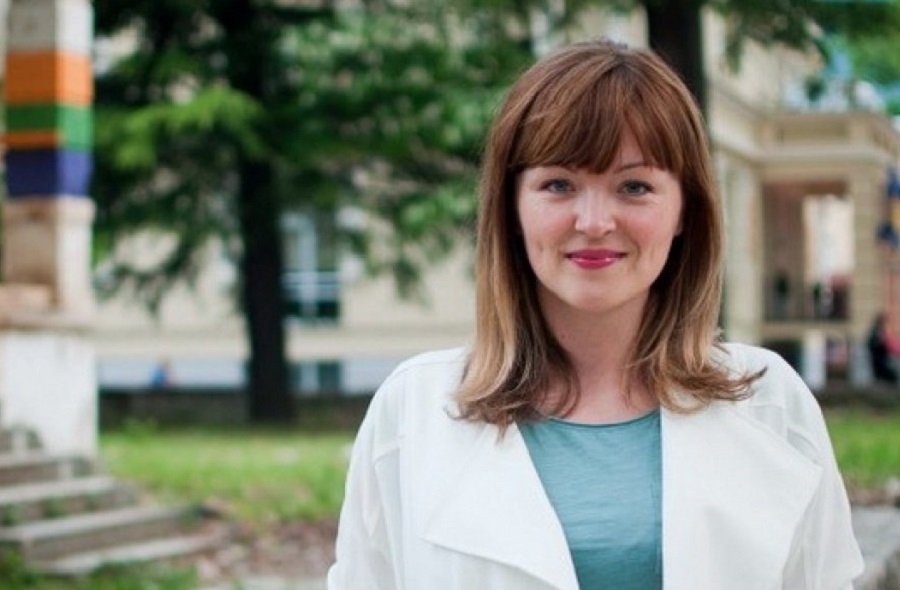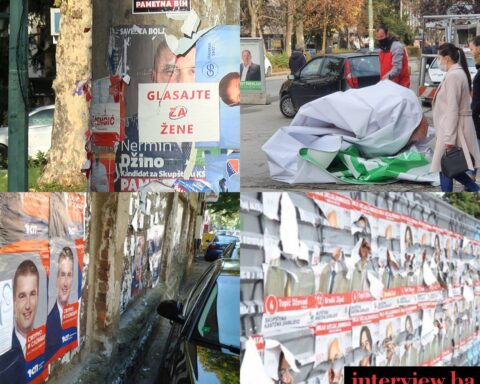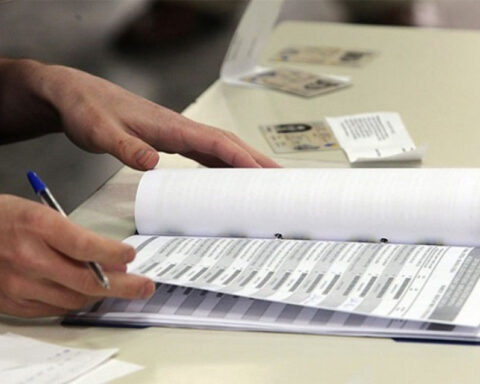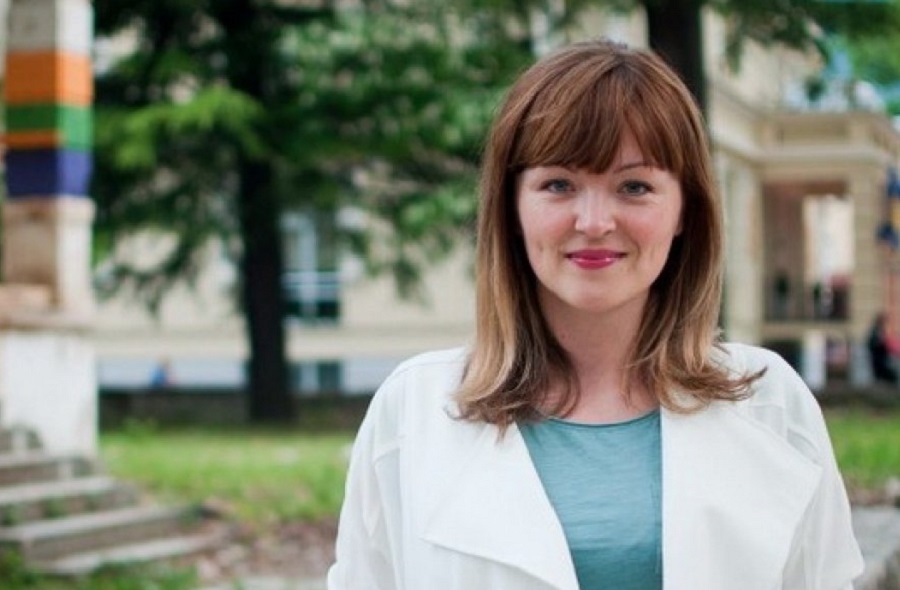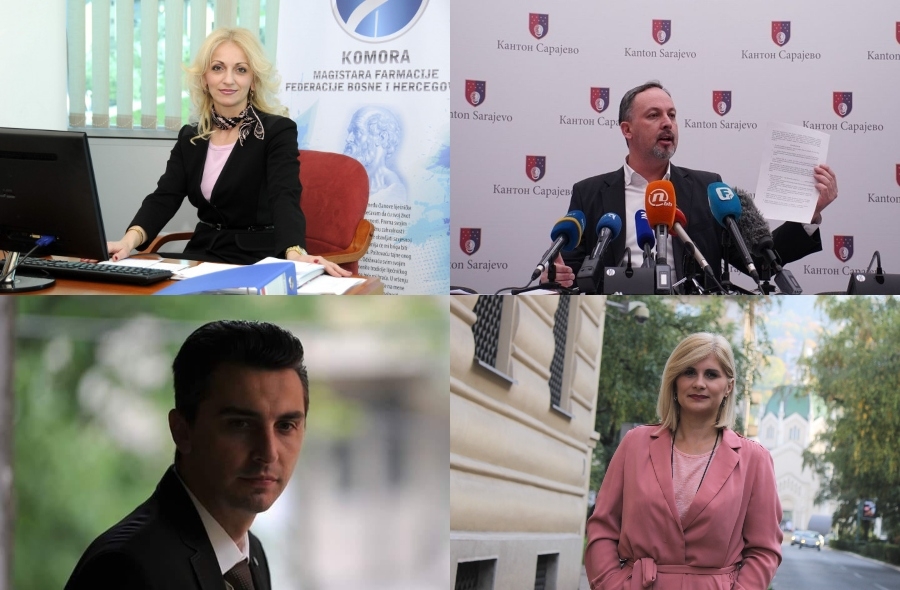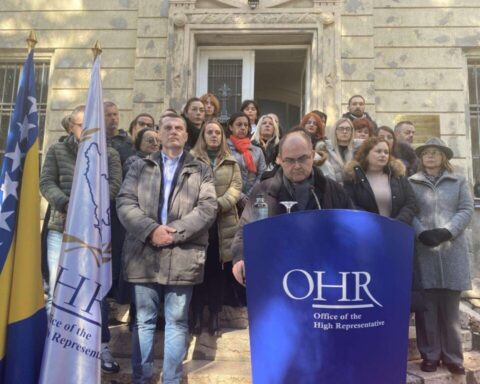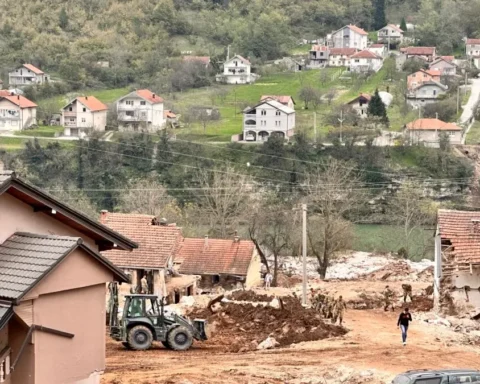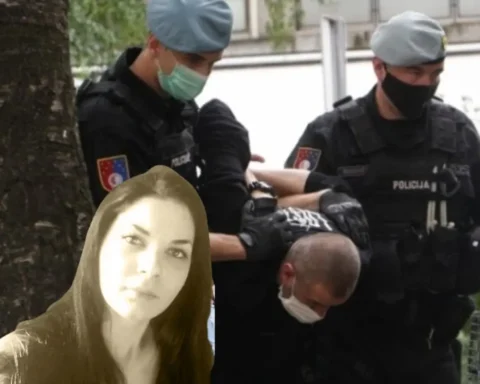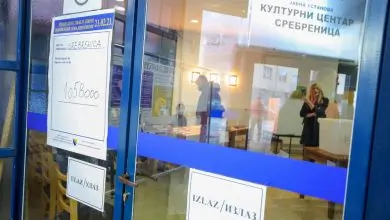In 2018, Irma Baralija from Mostar filed an application with the European Court of Human Rights against Bosnia and Herzegovina, for violating human rights by failing to hold elections in Mostar for 12 years. In late 2019, she received a judgement which confirmed that the rights of the residents of Mostar guaranteed by the European Convention on Human Rights. As of that moment, leaders of the Party for Democratic Action (SDA) and Croatian Democratic Union (HDZ) launched an active quest for a solution to the Mostar ‘case’. They reached a ‘political agreement’ in June this year, allowing elections but, according to many experts, no substantive changes. For Interview.ba, Baralija speaks about the nationalists’ ‘plan from hell’ for Mostar, how much the agreement damages the civic parties, how the city list of 17 members dropped to 13, and whether it is time for women to remove men from power…
CIVIC OPTION AT A DISADVANTAGE: ‘We now have to play by the SDA-HDZ rules. And in such an environment, we are expected to attain major results. I am not a pessimist, I am simply realistic; it will be difficult to ensure that they do not win 2/3, because they did everything they could to set up a model that suits them best’.
INTERVIEW.BA: There are different views of the political agreement between SDA and HDZ. Some experts praise it, some criticize it. As a person from Mostar, how do you see it?
BARALIJA: We can observe the SDA-HDZ agreement from two sides. If you observe it as someone who is fighting for an undivided city of Mostar, this agreement and the change in the BiH Election Law are disastrous. If you observe it as a member of one of the national parties who believes that the best structure for Bosnia and Herzegovina is that which is based on ethnic principles, then it’s a good agreement. I believe that the ethnic principle, the same one that the Dayton Agreement is based on, has proved to be dysfunctional and we have never advocated the application of this principle in the year 2020. We wanted Mostar to be organised under different principles. Unfortunately, national parties hold the majority in the State Parliament and this agreement was accepted.
INTERVIEW.BA: You described this agreement as a ‘plan from hell’ in two stages. What are the stages?
BARALIJA: The first stage was about changing the BiH Election Law so that elections could be held. The second is designing an ideal model for the Statute of the City of Mostar. At a conference following the signing, the leaders of SDA and HDZ announced a new model for the Statute of the City of Mostar, sending us a clear message that they would hold 2/3 in the City Council and that their model would be adopted, according to which commissions of sorts should be established in each city area, comprising council members elected from those areas. For example, I am registered in the Stari Grad area which provides five council members, according to the agreement. Four persons and I will set up a commission for the Stari Grad area, with more than 20,000 residents. According to their model, the mayor and the City Council will not be able to take any decisions related to city areas unless previously green-lighted by those commissions, meaning that they would be more powerful than the City, the City Council and the mayor. This strengthens the city areas and weakens the powers of the City itself. This is a huge problem. I think that NS and SDP will team up for the elections and we will do everything we can to prevent the second stage of their plan, i.e. that they should win 2/3 in the City Council to adopt their model of the Statute.
INTERVIEW.BA: As for the city areas themselves and the current city list, how much has changed compared to the old Statute of the City of Mostar, imposed in 2004?
BARALIJA: The Statute imposed in 2004 provides that Mostar should be set up as six city areas, corresponding to six constituencies. And th4e city areas, i.e. the constituencies, were not devised in 2004, these were categories derived for the Dayton Agreement, when the city was literally divided into two banks. At the time they said: ‘To make it less obvious that it’s just two banks and two ethnic groups, let’s divide the two banks further, into three municipalities each’. The municipalities used to have their own local mayors. The international community wanted to unite Mostar, i.e. to reduce the powers of the city areas and increase the powers of the City as a single administrative area. Thus, the Statute was imposed in 2004 and it perpetuated divisions, i.e. the six city areas, but administratively there was also the area of the entire city. Residents could vote for two lists: for someone who is from the area where they lived and for someone from the central city list. The division of 35 seats was as balanced as it could be: 18 members were from all the city areas, three from each, and 17 from the city list; this developed a sort of balance between the civic principle, reflected in the central list, and the ethnic one, reflected in the city areas. The problem was that the city areas had different population numbers, so that an area of 7,000 residents provided the same number of three members as another area with 30,000 residents. And then this model was declared unconstitutional, because there was no proportionality between the number of residents and the number of seats. However, with this agreement they not only introduced proportionality, but also reduced the number of city list members from 17 to 13, which was not necessary on the basis of the ruling of the Constitutional Court. According to the new agreement, we have 22 council members from the city areas and 13 from the city list. With this arrangement and from a historical perspective, we are almost returning to the period of post-Dayton Mostar.
INTERVIEW.BA: How much are the civic parties disadvantaged by this political agreement, since we know that the six city areas are predominantly Croat and Bosniak, i.e. HDZ and SDA voters, and 22 council members will be from those areas?
BARALIJA: The civic option and the opposition in Mostar are absolutely disadvantaged and pushed back. Our starting point is not zero, it is well below zero. We have to play by the HDZ-SDA rules. And in such an environment, we are expected to attain major results. I am not a pessimist, I am simply realistic; it will be difficult to ensure that they do not win 2/3, because they did everything they could to set up a model that suits them best. We will have to focus not only on the central city list, we will have to confront them in each city area. It is quite possible that I will have to confront SDA in the area where I live, and not be a candidate on the central city list, which should be expected.
INTERVIEW.BA: Your application against Bosnia and Herzegovina triggered changes. Active negotiations about Mostar started shortly after the ECtHR judgement. How many people actually supported you when you decided to sue the state for not organising elections in Mostar for 12 years?
BARALIJA: When I started this whole process, the only support came from my husband, family and friends. I never had any other major support and I do not hold it against anyone. I understand that all the years of driving people insane and convincing them that nothing can be changed and one should just let it be had made people feel hopeless. I think the application has given a boost to the ordinary people of Mostar, but its greatest benefit is that we have ensured the elections. Now we have an opportunity to do our best!
INTERVIEW.BA: A woman sued the state for depriving the residents of Mostar of their basic human rights. Is it time for women to become leaders and remove from power the men who have been pulling the state backwards for years now?
BARALIJA: There are more and more women of very different ages who say: ‘This cannot go on. We live in this country too, we are alive!’. I think the time has come for new faces in politics, particularly women. A woman’s perspective has certainly been missing.
INTERVIEW.BA: If we go back a few years, at the first post-war elections in Mostar, in 1997, the BiH Women’s Party also had a candidate. They had no major results but… times change, as do circumstances…
BARALIJA: It was logical for women’s movements to appear at the time. In a city which is deeply divided, fresh out of the war, with a heavy burden of the past, of killings, there is a natural reaction of every mother who says: ‘I’ll do my best to make sure this does not happen again’. Perhaps that was not the best time, because people were so traumatised, but I think that now the time is ripe.
INTERVIEW.BA: Many in Mostar fear that the voter turnout will be low, that the absence of elections has made people apolitical. What do you think?
BARALIJA: There is fear of that, but we have ample time to go out and talk to people, to try and mobilise them as best we can. HDZ and SDA will probably mobilise all the people they have employed over the years. However, not everyone in this city is rotten and corrupt, most people here are honest, honourable individuals, ultimately disgusted by what they see happening around them. We have to talk to them and try to bring back some hope and belief that things can be changed; at this time, we must not surrender without a shot being fired.
INTERVIEW.BA: People born in 1993 will be voting for the first time ever. Although they have had voting rights for quite some time, thy have not been able to vote at local elections in Mostar because of the blockage; perhaps they will be the decisive voice of change…
BARALIJA: International organisations that have conducted such research indicate that there are between 10 and 12 thousand persons in Mostar who will be voting for the very first time. Should most of them actually vote, those young persons could be the real force to tip the scales in the City Council.

